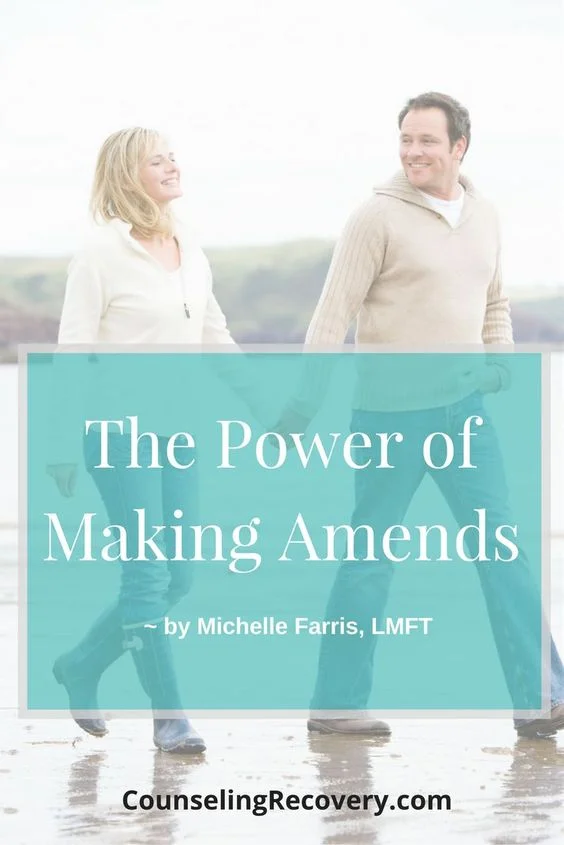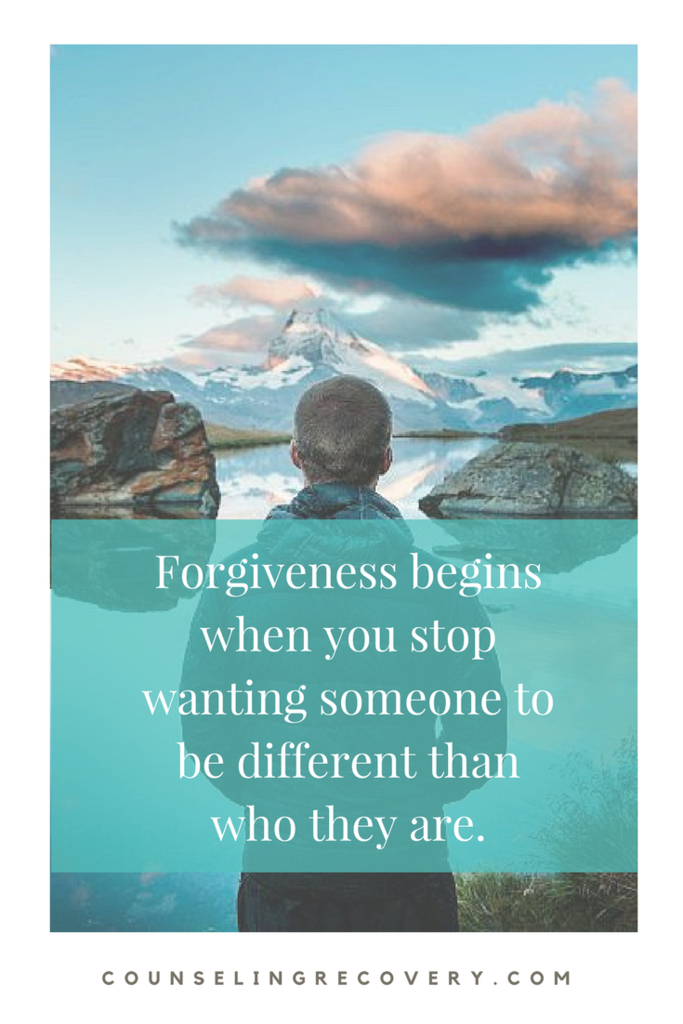The Power of Making Amends in Relationships
What's the difference between an apology and making amends?
"I'm sorry" is a common attempt to fix things. But the apology doesn't work if it becomes a pattern. Saying sorry can feel like the person wants you to forget about what happened without having to make it right.
Making amends means acknowledging your behavior and taking responsibility for it. This takes courage, humility, and a sincere desire to change.
Letting go of pride and ego makes this a challenging task.
When you avoid acknowledging your mistakes, they fester into guilt and remorse. Those feelings impact how you feel about yourself. You end up trying to avoid the other person because it hurts to face them.
12 Step Philosophy
The term "making amends" comes from the 12 Step program of Alcoholics Anonymous.
Step 9 - Made direct amends to such people wherever possible and when we were wrong, promptly admitted it.
This goes deeper than saying sorry. It's a willingness to acknowledge specific behavior that caused harm coupled with a sincere offer to make it right.
The amends is not about what was done to you. This is where most people get stuck. They expect an amends rather than have the desire to give one.
Amends are not recommended if they cause harm to another person. In that case, you make what's called a living amends. You focus on changing the behavior instead of making direct amends.
So how do you make amends? First we need to address what gets in the way.
Old Beliefs
Think about what you learned growing up. Were apologies considered a sign of weakness? Were they avoided or made into a joke?
How a family apologizes leaves a lasting impression. If apologies were considered negative you probably avoided them. Not because you weren't sorry but because it brought up shameful or embarrassing feelings that were hard to face.
If mistakes are hidden, you may struggle with perfectionism. This makes relationships difficult because you don't cut yourself any slack.
How does this affect relationships?
Most people don't like conflict. Hurt feelings get buried but they cause resentments that leak out when they aren't expressed.
This is called being passive aggressive. Feelings are expressed with indirect, hurtful comments, or gestures like eye rolling, sarcasm or even silence. Under the breath comments cause damage just the same.
Resentments create distance in relationships. Healthy relationships are tough when you can't talk things out. For more on how to let resentments go click The Art of Letting Resentments Go.
The Impact of Amends
Did you ever get a sincere apology from a parent or adult growing up? How would that have impacted you if you had?
You would have learned that being accountable was a sign of integrity not an embarrassment. Mistakes would have been considered lessons rather than something to avoid.
It takes courage to make a sincere amends. Taking this action has the potential to make a positive impact on both you and the person receiving it.
Benefits of Making an Amends
You experience a sense of emotional relief.
You feel good about yourself for having the courage to face it.
It repairs the relationship and can restore trust.
It gives you a sense of resolution to an unfinished situation.
Handling old hurts this way decreases worry and stress.
How to Make an Amends
Specifically naming the hurtful behavior is the first step. That often creates an opportunity to rebuild trust. If you acknowledge the behavior, it means more than a simple apology.
Whether or not the person accepts the amends is out of your control. Remember that the amends is as much for you as it is them. Expressing a sincere desire to make it right is the next step. You simply ask the other person what they need in order to heal.
Let go of the outcome. Keep focused why you're making the amends. It takes guts and integrity to acknowledge past behavior. Often, you're alone in this but the integrity you show can change the nature of your relationships.
If the other person isn't ready, or the friendship ends, remember that there may be a reconciliation down the road. You had the courage to face your fear. That level of integrity is a valuable trait that will make your relationships healthy.
Have you ever tried making an amends? How did it go? I'd love to hear!




